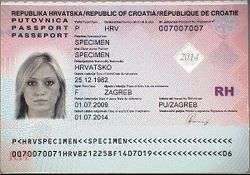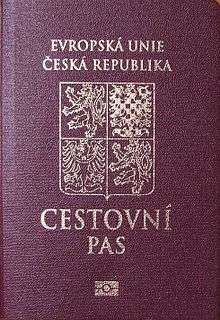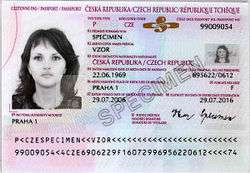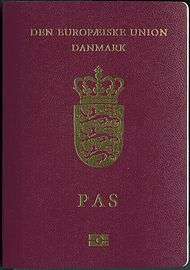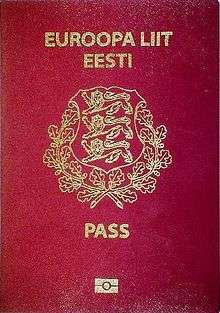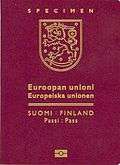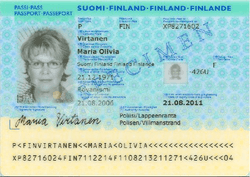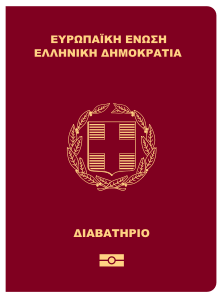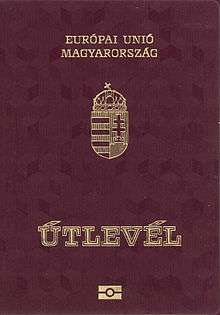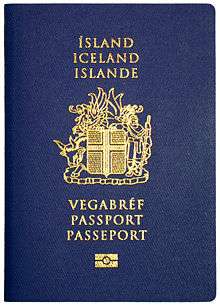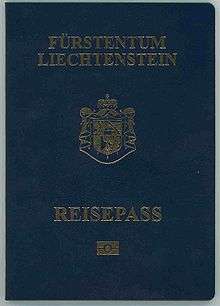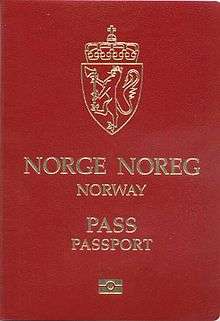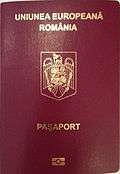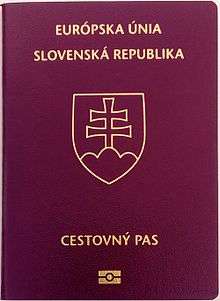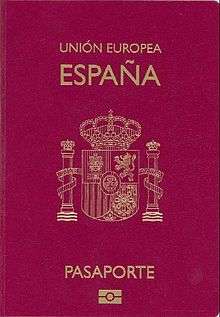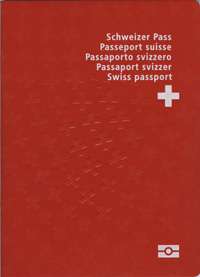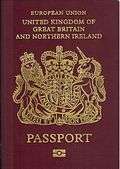Passports of the European Economic Area


Passports issued by European Economic Area member states (the European Union, plus Iceland, Liechtenstein, and Norway) or Switzerland can be used by citizens to exercise the right of free movement within the European Economic Area and Switzerland.[1]
When going through border controls to enter an EEA country, EEA and Swiss citizens possessing valid biometric passports are sometimes able to use automated gates instead of immigration counters. For example, when entering the United Kingdom, at major airports, adult holders of EEA or Swiss biometric passports can use ePassport gates, whilst all other EEA citizens (such as those using a national identity card or a non-biometric passport) and non-EEA citizens must use an immigration counter. Anyone travelling with children must also use an immigration counter.[2]
As an alternative to holding a passport, EEA or Swiss citizens can also use a valid national identity card to exercise their right of free movement within the EEA and Switzerland.[3] Strictly speaking, it is not necessary for an EEA or Swiss citizen to possess a valid passport or national identity card to enter the EEA or Switzerland. In theory, if an EEA or Swiss citizen outside of both the EEA and Switzerland can prove his/her nationality by any other means (e.g. by presenting an expired passport or national identity card, or a citizenship certificate), he/she must be permitted to enter the EEA or Switzerland. An EEA or Swiss citizen who is unable to demonstrate his/her nationality satisfactorily must nonetheless be given 'every reasonable opportunity' to obtain the necessary documents or to have them delivered within a reasonable period of time.[4][5][6]
Common design features for EU member states
Since the 1980s, member states of the European Union have started to harmonise aspects of the designs of their ordinary passports (but not other types of passports, such as diplomatic, service and emergency passports), as well as common security features and biometrics.[7]
Overall format
- Paper size B7 (ISO/IEC 7810 ID-3, 88 mm × 125 mm)
- 32 pages (passports with more pages can be issued to frequent travellers)
- Colour of cover: burgundy red
Cover
Information on the cover, in this order, in the language(s) of the issuing state:
- The words "EUROPEAN UNION" (before 1997: "EUROPEAN COMMUNITY")
- Name of the issuing state (similar typeface as "EUROPEAN UNION")
- Emblem of the state
- The word "PASSPORT"
- The Biometric Passport symbol:

First page
Information on the first page, in one or more of the languages:
- The words "EUROPEAN UNION"
- Name of the issuing state (similar typeface to that of "European Union")
- The word "PASSPORT"
- Serial number (may also be repeated on the other pages)
Identification page
In passports issued by the EU member states, information on the (possibly laminated) identification page, in the languages of the issuing state plus English and French, are accompanied by numbers that refer to an index that lists the meaning of these fields in all official EU languages. Passports issued in the EFTA member states do not necessarily list such references.
1. Surname 2. Forename(s) 3. Nationality 4. Date of birth 5. Sex 6. Place of birth 7. Date of issue 8. Date of expiry 9. Authority 10. Signature of holder
Personal name spelling differences
Names containing non-English letters are usually spelled in the correct way in the non-machine-readable zone of the passport, but are mapped according to the standards of the International Civil Aviation Organization (ICAO) in the machine-readable zone. For example, the German umlauts (ä, ö, ü) and the letter ß are mapped as AE / OE / UE and SS, so Müller becomes MUELLER, Groß becomes GROSS, and Gößmann becomes GOESSMANN.
The ICAO mapping is mostly used for computer-generated and internationally used documents such as air tickets, but sometimes (like in US visas) also simple letters are used (MULLER, GOSSMANN). German credit cards use in their non-machine-readable zone either the correct or the mapped spelling.
Some German names are always spelled with "old" spelling, such as the poet Johann Wolfgang von Goethe or the Third-Reich politician Paul Joseph Goebbels; however, in the name of the German football player Ulrich Hoeneß, the umlaut is spelled "old", but the letter ß is not (the spelling in the machine-readable passport zone is HOENESS, the ß being mapped here).
The three possible spelling variants of the same name (e.g. Müller / Mueller / Muller) in different documents sometimes lead to confusion, and the use of two different spellings within the same document (like in the passports of German-speaking countries) may give people who are unfamiliar with the foreign orthography the impression that the document is a forgery.
The Austrian passport can (but does not always) contain a note in German, English, and French that AE / OE / UE / SS are the common mappings of Ä / Ö / Ü / ß.
Names originally written in a non-Latin writing system may pose another problem if there are various internationally recognized transcription standards. For example, the Russian surname Горбачёв is transcribed
- "Gorbachev" in English,
- "Gorbatschow" in German,
- "Gorbatchev" in French,
- "Gorbachov" in Spanish,
- "Gorbaczow" in Polish, and so on.
The machine-readable zone contains the name transliterated in a standardized (English-based) way, defined by the standard for machine readable travel documents (ICAO 9303). Горбачёв would be written GORBACHEV.
Letters with accents are often replaced by simple letters (ç → C, ê → E, etc.), but for some letters mappings are common:
å → AA
ä, æ → AE
ij (capital letter: IJ )→ IJ
ö, ø, œ → OE
ü → UE (German) or UXX (Spanish)
ñ → N or sometimes NXX
ß → SS
ð → DH or sometimes D
þ → TH
It is recommended to use the spelling used in the machine-readable passport zone for visas, airline tickets, etc., and to refer to that zone if being questioned.
Following page
Optional information on the following page:
11. Residence 12. Height 13. Colour of eyes 14. Extension of the passport 15. Name at birth (if now using married name or have legally changed names)
Remaining pages
- The following page is reserved for:
- Details concerning the spouse of the holder of the passport (where a family passport is issued)
- Details concerning children accompanying the holder (name, first name, date of birth, sex)
- Photographs of the faces of spouse and children
- The following page is reserved for use by the issuing authorities
- The following page carries the index that translates the field numbers into the official languages of the EU
- The remaining pages are reserved for visa
- The inside back cover is reserved for additional information or recommendations by the issuing state in its own official language(s)
Overview of passports
| Member state | Passport cover | Biodata page | Cost | Validity | Issuing authority | Latest version | EEA membership |
|---|---|---|---|---|---|---|---|
| |
|
|
|
16 June 2006 | Yes | ||
| |
|
|
|
|
1 February 2008 | Yes | |
| |
 |
Link to file |
|
|
Ministry of Interior Affairs |
29 March 2010 | Yes |
| |
|
|
|
|
|
3 August 2015 | EU member state Croatia finished negotiating their accession to the EEA in November 2013, and is since 12 April 2014 provisionally applying the agreement pending its ratification by all EEA countries. |
| |
|
|
|
13 December 2010 | Yes | ||
| |
|
|
|
|
|
1 September 2006 | Yes |
| |
|
|
|
1 August 2006 | Yes | ||
| |
|
|
|
1 June 2014[10] | Yes | ||
| |
|
|
|
|
21 August 2012 | Yes | |
| |
|
21 August 2012 | Yes | ||||
| |
|
|
|
12 April 2006 | Yes | ||
| |
|
|
|
Municipal registration office | 11 November 2007 | Yes | |
| |
|
|
|
|
National Passport Centre ("Διεύθυνση Διαβατηρίων/Αρχηγείο Ελληνικής Αστυνομίας") | 28 August 2006 | Yes |
| |
|
|
|
|
Registration Office (Nyilvántartó Hivatal) |
1 March 2012 | Yes |
| |
|
|
Yes | ||||
| |
|
|
Consular and Passport Division of the Department of Foreign Affairs | Yes | |||
| |
|
|
|
Minister of Foreign Affairs through | 20 May 2010 | Yes | |
| |
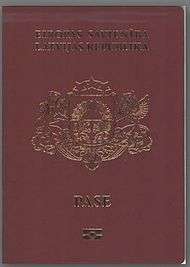 |
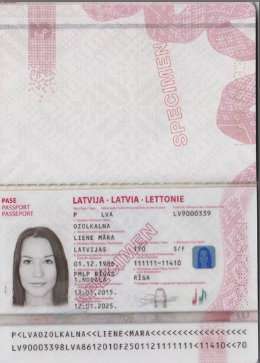 |
|
|
29 January 2015[17] | Yes | |
| |
|
|
|
|
Yes | ||
| |
|
|
|
27 January 2011 | Yes | ||
| |
|
|
Passport Office, Luxembourg | 1 July 2011 | Yes | ||
| |
29 September 2008 | Yes | |||||
| |
|
|
|
9 March 2014 | Yes | ||
| |
|
|
|
Norwegian Police Service | 1 April 2011 | Yes | |
| |
|
|
Application made within Poland:
Application made through a Polish consulate:
In both cases:
|
|
|
1 January 2006 | Yes |
| |
|
|
25 May 2009 | Yes | |||
| |
|
|
|
Ministry of Administration and Interior (General Directorate for Passports) | 26 April 2006 | Yes | |
| |
|
|
|
15 January 2008 | Yes | ||
| |
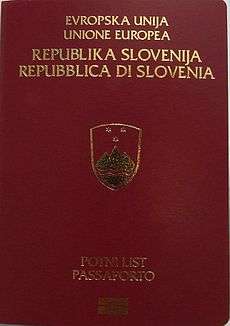 |
28 August 2006 | Yes | ||||
| |
|
|
|
2 January 2015 | Yes | ||
| |
Link to file |
Link to file |
|
|
|
2 January 2012 | Yes |
| |
|
|
|
1 March 2010 | EFTA member state Switzerland is not a part of the EEA, but is through a bilateral series of agreements a part of the area in a practical sense. | ||
| |
|
|
|
December 2015 | Yes | ||
| |
|
|
|
Civil Status and Registration Office, Gibraltar | Yes |
Passport rankings
Passport rankings by the number of countries and territories their holders could visit without a visa or by obtaining visa on arrival in 2016 were as follows (sourced from Henley Visa Restrictions Index 2016):
By country
For details, click on the name of the country:
EU countries:
- Austria: 173, Belgium: 174, Bulgaria: 153, Croatia: 149, Cyprus: 159
- Czech Republic: 167, Denmark: 174, Estonia: 162, Finland: 175, France: 175
- Germany: 177, Greece: 171, Hungary: 167, Ireland: 172, Italy: 175
- Latvia: 163, Lithuania: 162, Luxembourg: 172, Malta: 168, Netherlands: 174
- Poland: 161, Portugal: 172, Romania: 153, Slovakia: 165, Slovenia: 164
- Spain: 175, Sweden: 176, United Kingdom (British Citizen Passport): 175
EFTA countries:
- Iceland: 167, Liechtenstein: 164, Norway: 172, Switzerland: 172
By rank
|
|
See also
- Visa requirements for the European Union citizens
- National identity cards in the European Economic Area
- European Economic Area
- European Free Trade Association
- Schengen Area
- Visa policy of the Schengen Area
- Passports of the European Union
References
- ↑ Decision of the EEA Joint Committee No 158/2007 of 7 December 2007 amending Annex V (Free movement of workers) and Annex VIII (Right of establishment) to the EEA Agreement, EUR-Lex. Retrieved 24 November 2015.
- ↑ UK Border Agency: Using e-passport gates
- ↑ http://www.ukba.homeoffice.gov.uk/policyandlaw/guidance/ecg/ecb/ecb8/
- ↑ Article 6.3.2 of the Practical Handbook for Border Guards (C (2006) 5186)
- ↑ Judgement of the European Court of Justice of 17 February 2005, Case C 215/03, Salah Oulane vs. Ministervoor Vreemdelingenzaken en Integratie ()
- ↑ UK Border Force Operations Manual: Processing British and EEA Passengers without a valid Passport or Travel Document
- ↑ "Council Regulation (EC) No 2252/2004 on standards for security features and biometrics in passports and travel documents issued by Member States".
- ↑ http://diplomatie.belgium.be/fr/binaries/prijs_Paspoorten_FR_tcm313-122220.pdf
- ↑ Travel documents, website of the Ministry of the Interior of the Czech Republic
- ↑
- ↑ "Service prices 2014". Poliisi.fi. Retrieved 2014-03-10.
- ↑ http://www.poliisi.fi/poliisi/home.nsf/pages/10F984985C574838C225780D00304F72?opendocument
- ↑ http://www.poliziadistato.it/articolo/view/10301/
- ↑ http://www.poliziadistato.it/articolo/view/191/
- ↑ http://www.esteri.it/MAE/IT/Italiani_nel_Mondo/ServiziConsolari/Documenti_di_Viaggio/Passaporto.htm
- ↑ STATE FEES FOR ISSUANCE OF PASSPORT
- ↑
- ↑ Tarieven 2013
- ↑ Paspoort en identiteitskaart voor Nederlanders in het buitenland
- ↑ Paspoort wordt 10 jaar geldig
- ↑ http://www.pep.pt/faqs.html
External links
| Wikimedia Commons has media related to European Free Trade Association. |
| Wikimedia Commons has media related to European passports. |



